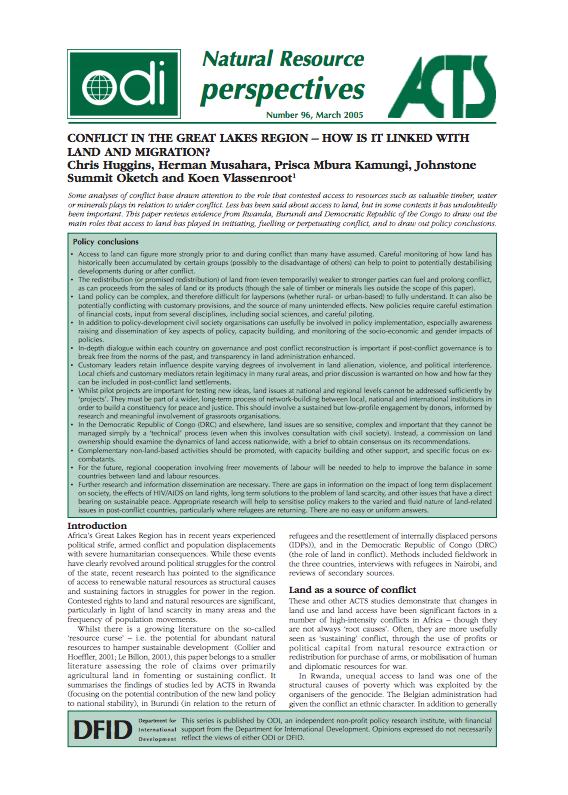The Overseas Development Institute (ODI) is the UK's leading independent think tank on international development and humanitarian issues.
Mission
Our mission is to inspire and inform policy and practice which lead to the reduction of poverty, the alleviation of suffering and the achievement of sustainable livelihoods in developing countries.
We do this by locking together high quality applied research, practical policy advice, and policy-focused dissemination and debate.
We work with partners in the public and private sectors, in both developing and developed countries.
Values
- Independence: ODI’s research, public affairs and policy advice are independent from its funders, and staff are able to challenge donor thinking and policy and the wider development consensus.
- High quality: Best practice, innovative approaches and continuous improvement are ensured in research, policy advice and public affairs.
- Fairness, diversity and equality: All staff and partners are treated fairly and with respect. ODI employment, disciplines and processes are appropriate for an institute focused on international development.
- Working together: There is continuous effort to foster better relationships throughout the organisation.
- Transparency and accountability: There is open reporting on the use of public funds, with full communication of our work to our donors, research subjects and partners.
- Sustainability: Resources are used in a sustainable way that reflects consciousness of the impact on the environment. The organisation works in a way that is sustainable, backed by commitment to its long-term viability.
Members:
Resources
Displaying 96 - 100 of 111Can payments for avoided deforestation to tackle climate change also benefit the poor?
Avoided deforestation (AD) has become a global concern with the United Nations Framework Convention on Climate Change (UNFCCC). This paper discusses financial incentive schemes to reduce rates of deforestation and forest degradation in tropical countries may be established and considers some of the issues from the perspective of host countries and the forest-dependent poor.
Conflict in the Great Lakes Region - how is it linked with land and migration
Africa’s Great Lakes Region has in recent years experienced
political strife, armed conflict and population displacements
with severe humanitarian consequences. While these events
have clearly revolved around political struggles for the control
of the state, recent research has pointed to the significance
of access to renewable natural resources as structural causes
and sustaining factors in struggles for power in the region.
Contested rights to land and natural resources are significant,
Some outstanding issues in the debate on external promotion of land privatisation
Since the early 1990s, the dominant consensus in the debate on land rights reform in sub-Saharan Africa has been that external interventions to privatise land rights are usually inappropriate and likely to remain so.
Learning from AMEC’s oil and gas asset support operations in the Asia Pacific Region, with case-study of the Shell Malampaya Gas-to-Power Project
This is the first in a series of evidence-based reports on the role of large engineering contractors in strengthening the positive local economic and social impacts of capital investment projects in the oil and gas sector in developing countries.




